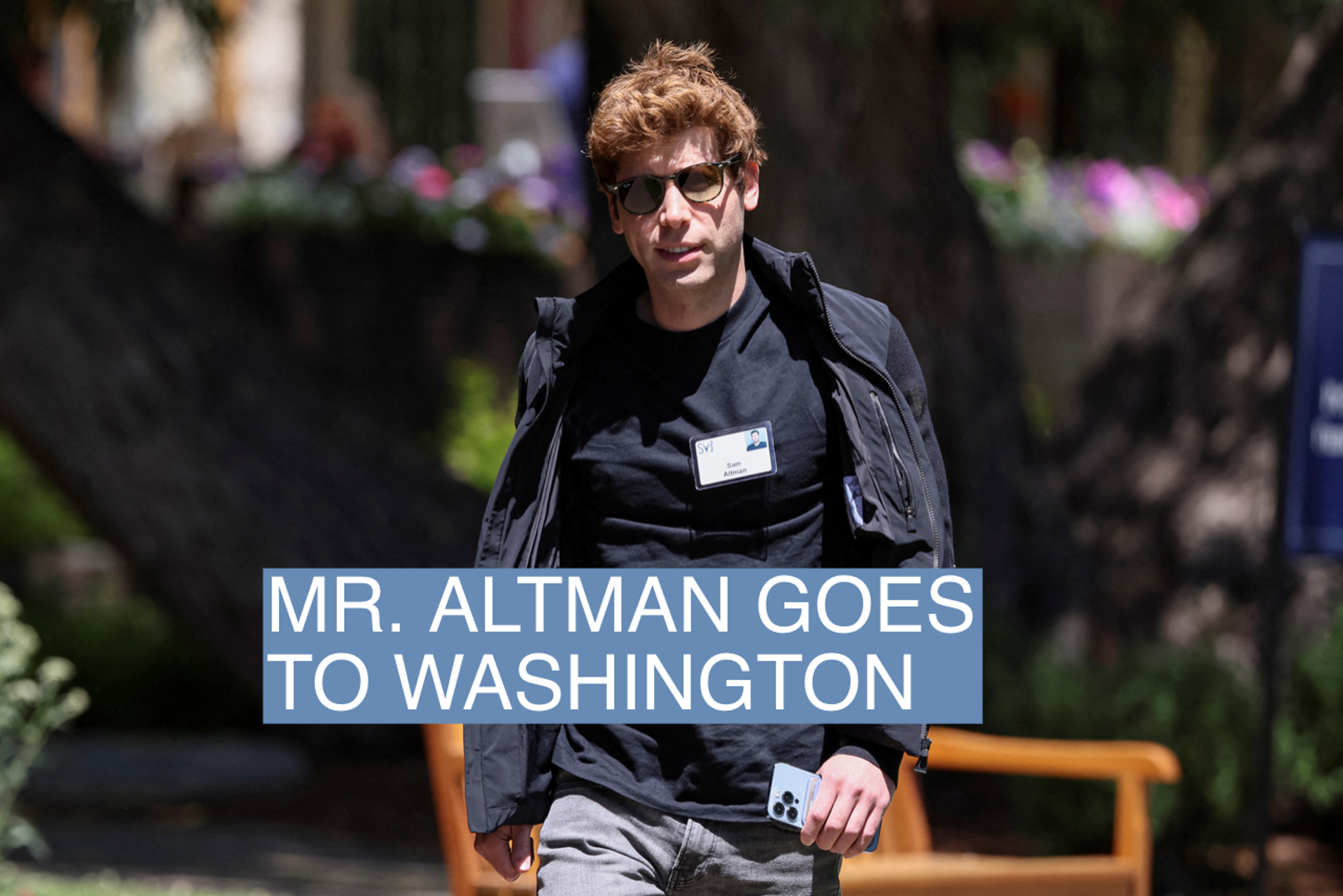The Scoop
Sam Altman, creator of ChatGPT and CEO of OpenAI, is making the rounds in D.C. this week, aiming to demystify the artificial intelligence tool that has captivated the world.
In meetings, Altman has sought to head off misconceptions about ChatGPT by explaining to lawmakers its uses and limitations, according to people familiar with the matter.
The service, an advanced chat bot powered by cutting edge AI, is so capable that its responses are indistinguishable from human writing.
The tool’s powerful capabilities have sparked conversations about how the technology could affect academic learning, disrupt entire industries and potentially be misused.
OpenAI, the company that created ChatGPT, has a partnership with Microsoft, which has agreed to invest around $10 billion into OpenAI, Semafor first reported.
In the meetings, Altman told policymakers that OpenAI is on the path to creating “artificial general intelligence,” a term used to describe an artificial intelligence that can think and understand on the level of the human brain.
— Gina Chon contributed to this report

In this article:
Reed’s view
New technologies are usually around for years before they enter the radar of D.C. lawmakers. The fact that ChatGPT is already a topic of conversation in the halls of Congress just a few months after it was made available to the public, speaks to its potential for massive impact and disruption.
But there’s another reason Altman is likely in D.C. this week: Unlike most technology companies of the past, OpenAI began focusing on its potential impacts on society long before it ever launched a consumer product.
OpenAI was formed as a nonprofit in 2015 by some of the tech industry’s most successful entrepreneurs, like Elon Musk, investor Peter Thiel, LinkedIn co-founder Reid Hoffman and Y Combinator founding partner Jessica Livingston. A central mandate was to study the possibility that artificial intelligence could do harm to humanity.
In 2019, OpenAI morphed into a for profit company with capped earnings. Spillover profits will go to the original OpenAI nonprofit. OpenAI has blogged about the importance of regulation and pointed to “information asymmetries between developers and regulators.”
Along those lines, it makes sense that Altman would be on a tour of Washington right now. He is likely less concerned about competitors taking pot shots at his company, and more worried that the technology’s rapidly-advancing progress may require swift action on the part of regulators.
If that happens, the more information regulators have now, the better.
Room for Disagreement
Congressman Ted Lieu, who has a computer science degree, wrote in the New York Times that advances in AI and the potential harm it could cause warrants a dedicated agency that polices the technology.
“We can harness and regulate A.I. to create a more utopian society or risk having an unchecked, unregulated A.I. push us toward a more dystopian future,” he said in an essay. “And yes, I wrote this paragraph.”